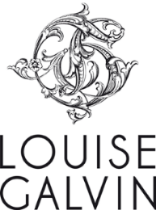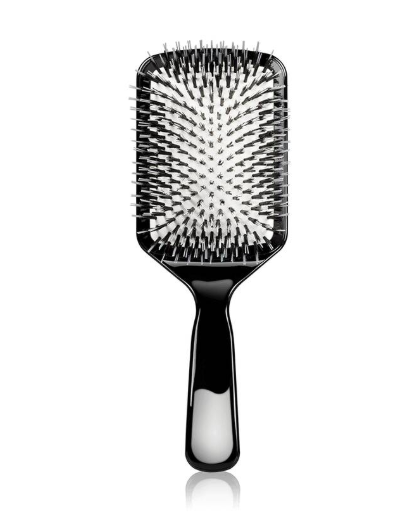I am often asked about hair loss and what can be done to help abate hair falling out. Hair loss is a complex matter with many possible causal factors. As we approach our 40’s (and menopause) the rate of our hair falling can increase quite significantly, which may be a result of hormonal fluctuations. I will keep my explanation as simple as possible but will include the advice of my fabulous nutritionist JACKIE McCUSKER* whose area of expertise is in trying to identify the biochemical imbalances that result from factors such as nutritional deficiencies, stress, toxicity, hormonal imbalances etc. These imbalances are implicated in a wide range of health problems (including hair loss), particularly as we age. Generally speaking women reach the peri-menopausal stage from 40 onwards, in some this can occur earlier, as early as in your 30’s. According to Jackie ‘’Hair loss in women is often associated with abrupt shifts in hormonal levels and change associated with childbirth and menopause”.
From around the age of 40 onwards (or earlier in some cases), women reach the peri-menopausal stage of their lives and there can be a long transition to full menopause.
Over this time there is a sharp decline in both Oestrogen and Progesterone levels. Jackie explains that “these hormones are not only important for reproduction but also other regulatory functions in the body including the hair growth cycle. When the level of oestrogen in particular drops, as in the perimenopausal/menopausal stage of life, this can give rise to imbalances in other hormones called the androgens or male hormones. Testosterone is an androgen and although commonly thought of as the male hormone, it is also produced in smaller amounts in females in the ovaries and adrenal glands. A by product of testosterone called Dihydrotestosterone (DHT), has been identified through research as being the main enemy to hair follicles as it appears to bind to them and shrinks them, thus hair grows thinner, resulting in hair loss”
If like me you prefer a more holistic and natural approach to realigning your hormonal balances, I would recommend seeing a qualified Nutritionist and/or Herbalist. Jackie McCusker advises me on all things nutritional. ‘’Whilst no two women are alike as we all have our unique biochemistry, there are definitely simple yet very effective dietary changes you can make to help balance your hormones, thus benefiting hair health” Jackie’s key recommendations for eating to balance your hormones and hair health are:
· Include good quality protein sources in your diet, such as organic fermented whole soy bean products like Tempeh, Natto, Miso, which are all rich in natural compounds called isoflavones, these may have a DHT lowering affect. Other brilliant sources of protein are eggs, fish, nuts & seeds, organic lean meats.
· Be mindful of the quantity and quality of the carbohydrates you are consuming. Swap your carbohydrate sources from high glycaemic load (GL) & index (GI) (e.g. white refined grains including white breads, pastas, rice, potatoes) for those with a low glycaemic load & glycaemic index (e.g oats, brown basmati rice, granary bread, sweet potatoes). Try replacing grains with lentils and quinoa a few times a week as these are a great source of protein.
· Not all fat is bad; in fact essential fatty acids (EFA’s) are crucial for hormonal balance and hair health. Rich sources of EFA’s include oily fish (wild salmon, mackerel, sardines, and herring). Aim for two portions of oily fish per week but be mindful of tuna and sword fish as these have been found to contain high levels of mercury. Other sources of EFA’s are nuts, seeds and oils. Cook with plain olive oil, rapeseed oil or coconut oil as these have higher burning temperatures. Extra virgin olive oil and flax seed oils are delicate and shouldn’t be heated but are delicious when used in salad dressings or drizzled over vegetables.
· Avoid refined sugar as this is a potent hormone destabilizer.
· Fill up on a rainbow of vegetables, including the green leafy vegetables (e.g. cabbage, broccoli, kale, watercress etc.), brightly coloured vegetables (bell peppers, beetroot, carrots and squashes etc.), fungi (shitake mushrooms, chestnut mushrooms, Portobello mushrooms etc.). Taken together these provide a myriad of essential nutrients including vitamins, minerals and plant nutrients which are essential for health. For hormone balancing they are rich sources of magnesium and the B group vitamins which are also essential for hair health. A diet rich in vegetables provides a brilliant source of fibre to keep your bowel regular, thus ensuring that old hormones are properly excreted.
If you are experiencing hair loss then it’s important to seek professional advice to determine the underlying cause. Having said this, my general approach for hair health, is one which incorporates good hair maintenance habits (i.e. reducing environmental stress exposure by using gentle, nourishing, high quality hair products that are as natural as possible) with good nutrition combined with stress management and exercise, as a balanced recipe for strong, healthy hair.
*Jackie McCusker Nutritional Therapist BSc (Hons) Nutritional Therapy, mBANT,CNHCEmail: Jackie.mccusker@sky.com Telephone: 070976 535675






































